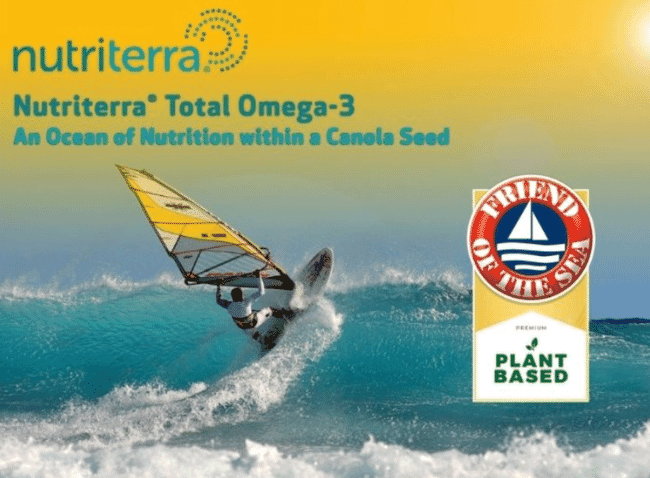
Omega-3 is traditionally derived from oily fish, such as anchovies, but Nuseed has engineered a strain of canola that is capable of producing two of the key long chain polyunsaturated fatty acids, EPA and DHA, that make up the oil.
The end product, called Nutriterra, joins Aquaterra, also from the Nuseed family, as the first products to receive the new plant-based certification from Friend of the Sea. It has been developed with innovative plant-to-plant biotechnology to deliver the nutrition of microalgae through the renewable canola seed, which “spares the oceans and protects the land following Friend of the Sea certification guidelines”.
“Consumers are deeply concerned about ocean health. Nuseed’s sophisticated technology has the potential to double the world’s supply of DHA without depleting ocean resources. Consumers are also looking for better tasting options. Nutriterra provides total omega-3 nutrition with a milder sensory experience than marine oils.” said Benita Boettner, Nuseed nutritional general manager, in a press release.
Canola is a rotational crop that improves soil and increases yield in subsequent plantings. The Friend of the Sea logo granted to Nutriterra guarantees the sustainable production of these crops and respect of the following criteria:
- Safeguarding of the ecosystem.
- Protection of wild fauna and flora.
- Protection of soil and water resources.
- Prohibition of the use of dangerous substances.
- Responsible waste and energy management.
- Social responsibility of the whole chain.
- Legal compliance.
Additionally, by using canola instead of fish for Omega-3 production, Nutriterra takes pressure off the oceans’ precious natural resources.
“We’re thrilled to see how innovation can support sustainability efforts. Nutriterra is a good example of this. We’re pleased to announce the certification of this new ingredient from the Nuseed family who has shown a strong commitment to sustainable practices,” said Paolo Bray, CEO and founder of Friend of the Sea.



